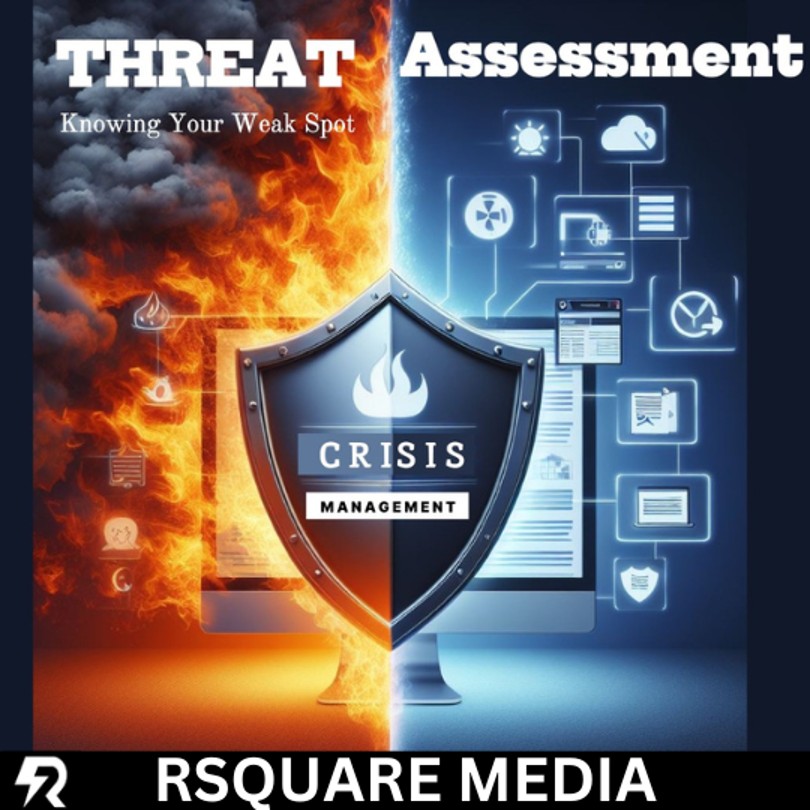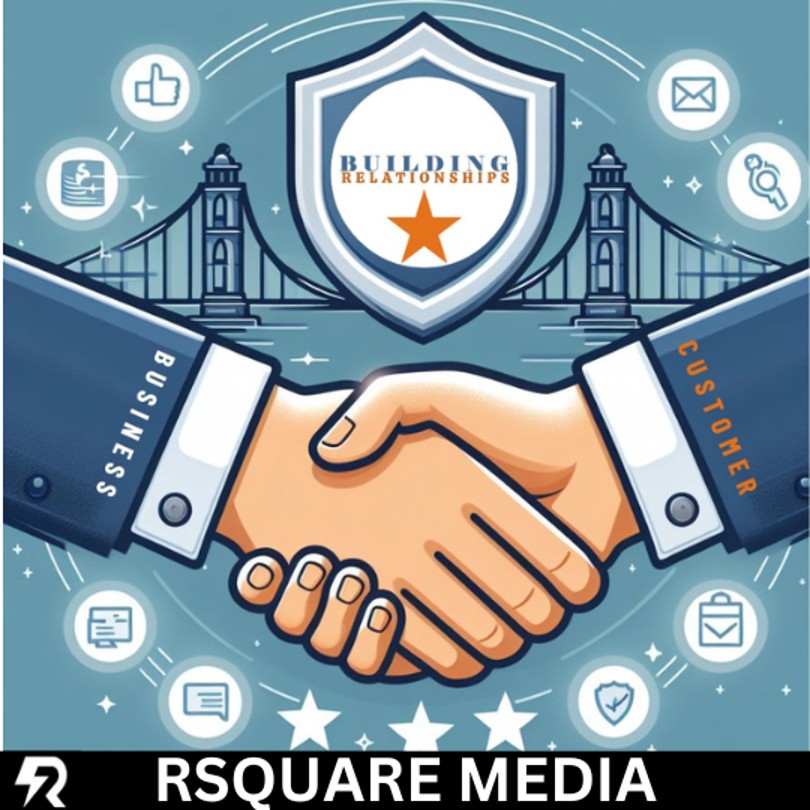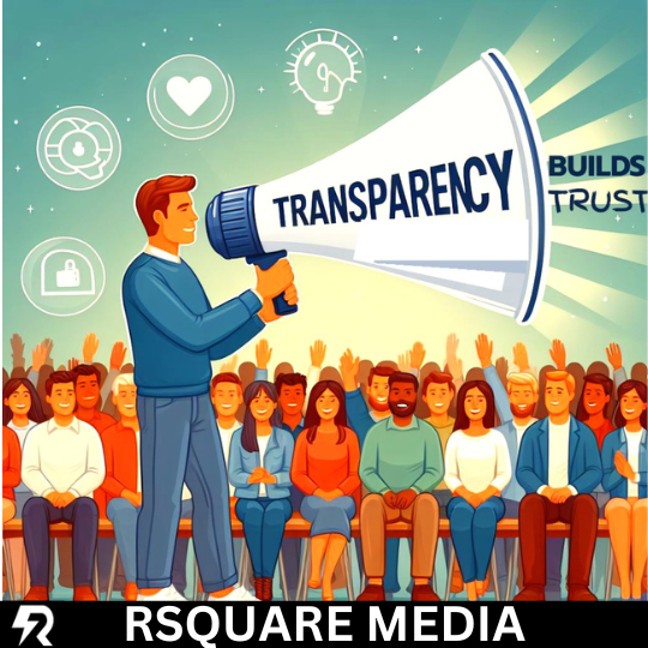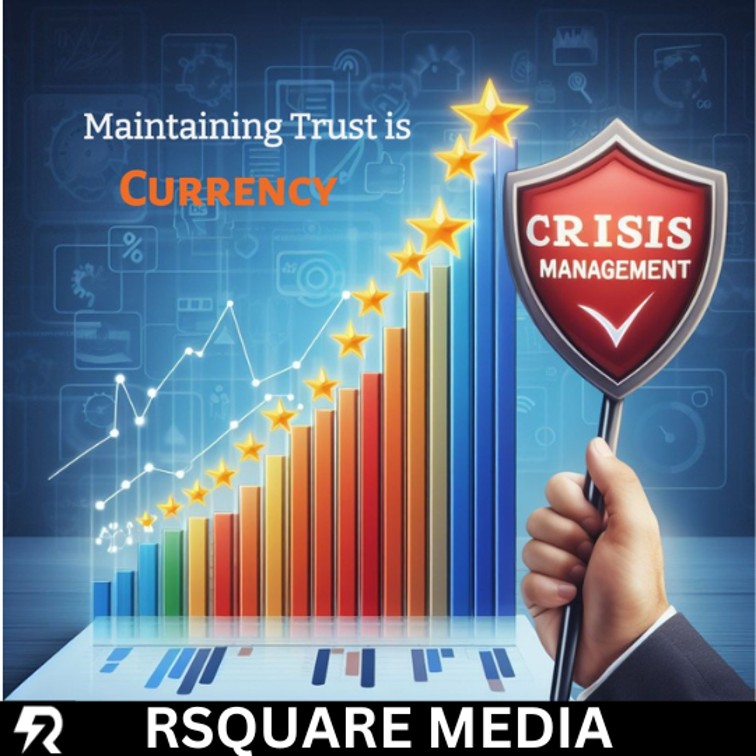 Imagine this: you wake up to a notification that sends a jolt through your morning coffee. A scathing review, a negative news article, an angry social media tirade – all targeting your business. Your carefully crafted online reputation is under fire, and the flames threaten to engulf your brand’s image.
Imagine this: you wake up to a notification that sends a jolt through your morning coffee. A scathing review, a negative news article, an angry social media tirade – all targeting your business. Your carefully crafted online reputation is under fire, and the flames threaten to engulf your brand’s image.
This, my friends, is the nightmare scenario of any internet marketing professional. In today’s digital age, where bad news travels faster than ever before, a single online crisis can have a devastating impact. Here’s the good news: just as building a fort in your living room as a kid, you can create a digital forcefield to protect your business from online negativity, called crisis management.
Crisis Management: Your Superhero Cape in the Digital Age
Crisis management is the art of planning, preparing for, and responding to negative events that threaten your business’s reputation. It’s like having a superhero cape in the digital age, ready to swoop in and save the day (or rather, your online presence). Here’s why it’s crucial for internet marketing professionals in the technology, finance, and professional services industries:
-
Maintaining Trust is Currency:
In these industries, trust is paramount. Negative online reviews or press can erode that trust faster than you can say “social media firestorm.” Crisis management helps you address issues swiftly and transparently, ensuring your audience knows you value their opinion and are committed to resolving problems.
-
The Power of Perception:
A well-managed crisis can actually enhance your reputation. By showing a proactive and empathetic approach, you demonstrate your commitment to customer satisfaction. This can turn a potentially negative situation into a positive display of your company’s character.
-
Turning the Tide on Online Sentiment:
The internet never forgets, but it can forgive. Crisis management allows you to control the narrative, taking ownership of the situation and offering clear explanations or apologies to mitigate damage and influence long-term brand perception.
Building Your Digital Forcefield: A Step-by-Step Guide
Now that you understand the importance of crisis management, let’s dive into how to build your very own digital forcefield:
Step 1: Threat Assessment – Knowing Your Weak Spots
Before a crisis hits, it’s vital to identify potential threats. Think of it as scouting out vulnerabilities in your fort before the neighborhood bully shows up. Here are some areas to consider:
-
Product or Service Issues:
Are there any potential problems with your offerings that could lead to customer dissatisfaction? Proactive fixes and clear communication can nip negativity in the bud.
-
Security Vulnerabilities:
Data breaches or privacy concerns can be a PR nightmare. Regularly assess your security measures and have a plan in place to address any potential issues.
-
Internal Disgruntled Employees:
While rare, disgruntled employees can sometimes take their frustrations online. Fostering a positive work environment and clear communication channels can help minimize this risk.
Step 2: Crisis Communication Plan – Having a Playbook Ready
Imagine facing a monster under your bed without a flashlight. Not fun, right? A crisis communication plan is your digital flashlight, offering a roadmap for clear and effective communication during a crisis. Here are some key elements:
-
Assemble Your Team:
Identify key decision-makers and designate a spokesperson. This ensures a unified message and avoids confusion during a high-pressure situation.
-
Craft Your Messaging:
Develop pre-written responses for common issues and have a clear escalation process for more complex situations. This ensures a consistent and timely response.
-
Identify Your Communication Channels:
Know where your audience spends their time online. Is it social media, industry publications, or customer review platforms? Having a plan for each platform ensures you reach the right people with the right message.
Step 3: Public Relations – Your Reputation Ally
Public relations (PR) is your secret weapon in crisis management. A strong relationship with the media can help you get your message out and control the narrative. Here’s how PR can be your ally:
-
Media Training:
Prepare your spokesperson for media interviews. This ensures clear and confident communication, even under pressure.
-
Building Relationships:
Cultivate good relationships with journalists and media outlets relevant to your industry. This can make them more receptive to your side of the story during a crisis.
-
Proactive Press Releases:
Don’t wait for the media to come knocking. If a crisis hits, be prepared to issue a press release that outlines the situation, the steps you’re taking to address it, and how you’re committed to preventing future issues.
Step 4: Online Reputation Management – Cleaning Up the Aftermath
Even with the best planning, a crisis can leave some digital debris in its wake. Here’s where online reputation management (ORM) comes in. ORM is the ongoing process of monitoring, influencing, and protecting your online reputation.
Think of it as cleaning up the aftermath of the monster under the bed situation. Here’s how ORM helps you maintain a positive online presence after a crisis:
-
Monitor Your Online Presence:
Continuously track online mentions of your brand, including social media, review platforms, and news articles. This allows you to identify and address any negative sentiment quickly.
-
Respond to Reviews (Positive and Negative):
Don’t shy away from negative reviews. Respond promptly and professionally, acknowledging the customer’s concerns and outlining the steps you’re taking to resolve the issue. This demonstrates your commitment to customer satisfaction.
-
Encourage Positive Reviews:
Happy customers are your best advocates. Encourage satisfied clients to leave positive reviews on platforms relevant to your industry. This helps drown out any lingering negativity and showcases the positive aspects of your business.
The Cavalry Arrives: Partnering with a Reputation Management Company
Building a robust crisis management plan and maintaining a positive online reputation can be a daunting task, especially for smaller businesses. That’s where a reputable reputation management company like Rsquare Media (shameless plug, but you got to start somewhere!) comes in.
Think of us as your digital knights in shining armor. We offer a range of services to help you manage your online reputation, including:
- Crisis Communication Planning: We’ll help you develop a comprehensive plan to navigate any online storm.
- 24/7 Monitoring: We keep a watchful eye on your online mentions, so you don’t have to.
- Social Media Management: We can craft and deliver strategic messaging across your social media platforms during a crisis.
- Media Relations: We leverage our industry connections to help you get your message out to the right media outlets.
Crisis Management – Your Investment in Peace of Mind
In today’s hyper-connected world, a single online crisis can have a lasting impact on your business. By investing in crisis management, you’re building a digital forcefield that protects your reputation and fosters long-term trust with your audience. Remember, a well-managed crisis can even turn into an opportunity to showcase your company’s character and commitment to customer satisfaction.

Crisis Management: Beyond the Basics (Advanced Strategies for Internet Marketing Professionals)
So far, we’ve covered the fundamental pillars of crisis management – threat assessment, communication plans, PR, and online reputation management. But what if you’re an internet marketing professional seeking a deeper understanding of crisis management in the ever-evolving digital landscape? Buckle up, because we’re about to delve into some advanced strategies specifically tailored for technology, finance, and professional services industries.
The Nuances of Crisis Communication in Your Industry
Effective crisis communication hinges on understanding your audience and tailoring your message accordingly. Here’s how to refine your communication strategy for each industry:
-
Technology:
Tech-savvy audiences expect transparency and technical expertise. Utilize clear, concise language devoid of jargon. Leverage data and evidence to build trust and explain complex issues.
-
Finance:
Financial audiences prioritize stability and security. Focus on clear explanations of any financial implications and emphasize the steps you’re taking to safeguard customer information.
-
Professional Services:
Clients in these industries value trust and expertise. Demonstrate empathy and understanding of their concerns. Showcase the qualifications and experience of your team to reassure clients of their ability to navigate the situation.
Social Media in the Crisis Crucible: Taming the Two-Headed Beast
Social media can be a double-edged sword in a crisis. It can amplify negative sentiment or be harnessed to control the narrative. Here are some advanced social media strategies for crisis management:
-
Social Listening:
Don’t just post, listen! Utilize social listening tools to track the conversation about your brand on social media. Identify emerging concerns and address them promptly.
-
Community Management:
Engage with your followers during a crisis. Respond to comments and questions in a timely and empathetic manner. Acknowledge their frustrations and show them you’re actively listening.
-
Influencer Outreach:
Partner with relevant industry influencers to amplify your positive messages during a crisis. This can help you reach a wider audience and build trust with potential customers.
Crisis as an Opportunity: Turning the Tables on Negativity
Believe it or not, a crisis can be an opportunity! Here’s how to leverage a crisis to strengthen your brand:
-
Showcase Your Values:
A crisis can be a platform to demonstrate your company’s core values. How you handle the situation reflects your commitment to customer service, transparency, and ethical business practices.
-
Humanize Your Brand:
Connect with your audience on a deeper level. Share stories of how you’re working to resolve the issue and the impact it has on your team. This fosters empathy and strengthens brand loyalty.
-
Demonstrate Growth:
Show that you’ve learned from the crisis. Share the steps you’re taking to prevent similar issues from occurring in the future. This demonstrates a commitment to continuous improvement.
The Evolving Threat Landscape: Staying Ahead of the Curve
The digital world is constantly changing, and so are the potential threats to your online reputation. Here’s how to stay ahead of the curve:
-
Emerging Technologies:
Be aware of new technologies that could pose potential risks to your online reputation, such as deepfakes or social media manipulation tactics.
-
Industry Trends:
Stay informed about industry-specific threats like data breaches within the financial sector or security vulnerabilities in new technologies.
-
Competitor Analysis:
Learn from the crisis management strategies (and missteps) of your competitors. This can help you identify potential threats and develop proactive solutions.
Crisis Management – A Continuous Journey
Building a robust crisis management plan is an ongoing process. Regularly review and update your plan to ensure it reflects the evolving digital landscape and your company’s growth. Remember, crisis management is not just about weathering the storm; it’s about emerging stronger and more resilient.
By implementing these advanced strategies, internet marketing professionals in technology, finance, and professional services can navigate any online crisis with confidence.
Ready to take your crisis management skills to the next level? Visit rsquaremedia.com for additional resources and insights. We’re also offering a free consultation to discuss your specific needs. Don’t wait until a crisis hits – be proactive and build your digital forcefield today!

Beyond the Basics: Advanced Crisis Management Strategies for the Savvy Marketer
While the previous sections covered the essential elements of crisis management, the digital battlefield is ever-evolving. Here, we delve into some advanced strategies for the internet marketing professional who wants to stay ahead of the curve:
-
Embrace Transparency and Authenticity:
In today’s world, consumers crave authenticity. Gone are the days of corporate doublespeak. During a crisis, be upfront and honest about the situation. Explain what happened, what you’re doing to fix it, and most importantly, take ownership of the issue. This transparency builds trust and demonstrates your commitment to resolving the problem.
-
Leverage the Power of Social Listening:
Social media isn’t just for broadcasting messages; it’s a powerful tool for gathering real-time insights. Utilize social listening tools to track online conversations about your brand, industry trends, and emerging threats. By proactively identifying potential issues, you can address them before they escalate into full-blown crises.
-
Humanize Your Brand:
People connect with people, not faceless corporations. In a crisis, put a human face on your brand. Let your employees, especially those directly involved, have a voice in the conversation. This personal touch fosters empathy and shows the human side of your business.
-
Prepare for the Unforeseen:
The unexpected is the nature of crises. While thorough planning is crucial, don’t get bogged down in rigid scripts. Develop a flexible framework that allows for adaptability in the face of unforeseen circumstances. The ability to think on your feet and adjust your approach will be invaluable in navigating a crisis.
-
Crisis Simulations – Practice Makes Perfect:
Just like firefighters conduct drills, practicing your crisis response can make all the difference when the real thing hits. Conduct regular simulations with your team to test your communication plan, identify potential weak spots, and refine your approach. This “stress test” will ensure your team is prepared and confident when a crisis arises.
Bonus Tip: Embrace the Power of Storytelling:
Humans are wired to connect with stories. During a crisis, use storytelling to explain the situation, the steps you’re taking, and your commitment to improvement. Share stories of how you’ve addressed similar issues in the past or highlight positive customer experiences. This narrative approach can be more engaging and impactful than dry, factual statements.
Remember: Crisis management is an ongoing process, not a one-time event. By continuously monitoring your online presence, adapting your strategies, and staying informed about the latest trends, you can ensure your business is well-equipped to handle any online storm that may come your way.
Ready to take your crisis management skills to the next level?
- Visit our blog at rsquaremedia.com for ongoing insights and industry best practices.
- Subscribe to our newsletter to receive regular updates and expert advice on online reputation management and crisis communication.
By investing in your crisis management capabilities, you’re investing in the long-term success and reputation of your business. Don’t wait for a crisis to strike – take control of your online narrative and build a digital forcefield that protects your brand and fosters trust with your audience. By implementing these advanced strategies, you can transform crisis management from a reactive exercise to a proactive measure that strengthens your brand reputation and fosters long-term trust with your audience. Remember, a well-managed crisis can even become a catalyst for positive change and growth within your organization.

Partner with Rsquare Media! We offer a comprehensive suite of services tailored to the specific needs of businesses in the technology, finance, and professional services industries. Together, we can help you navigate any online storm and emerge a stronger, more resilient brand. In conclusion, crisis management is a critical component of online reputation management for businesses in the technology, finance, and professional services industries. By understanding the importance of crisis management, implementing effective communication and PR strategies, and leveraging online reputation management tactics, businesses can navigate crises successfully and emerge with their reputation intact. Ready to learn more about Crisis Management and how it can protect your brand’s reputation? Don’t forget to schedule a free quote.
